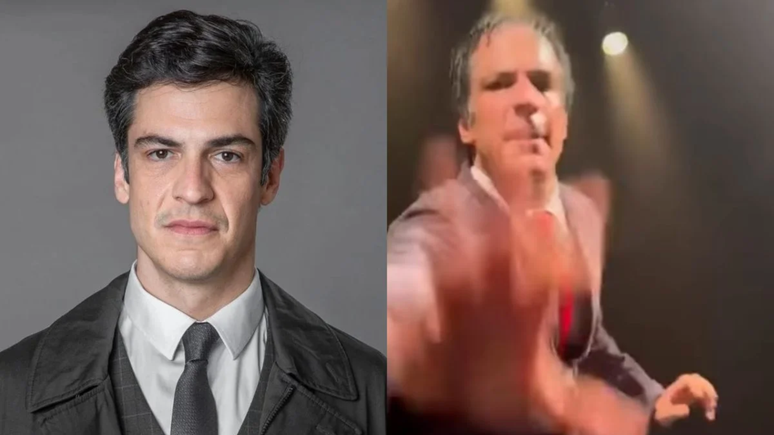From 2011 to 2017, the “Planet of the Apes: War” trilogy was released, starring Caesar, played by actor Andy Serkis. It took seven years for a new film in the saga to hit theaters.
This new film, directed by Wes Ball (known for his work on the “Maze Runner” trilogy), takes place several generations after Caesar’s reign, where apes are the dominant species and humans are left in the shadows.
This peace will be disrupted as a new and tyrannical ape leader builds his empire, while a young primate embarks on a journey that will make him question everything he thought he knew.
If you want to catch up on this franchise, below we explain in which order you can watch the films that make it up to better understand ‘Planet of the Apes: New Kingdom’.
“Planet of the Apes: (R)Evolution” (2011)
This film tells the story of a scientist working on a cure for Alzheimer’s disease, which is being tested on monkeys. One of these monkeys, Caesar, develops extraordinary intelligence and is taken to live with the protagonist.
However, conflicts arise that spark an ape rebellion against humanity, exploring themes such as human cruelty, evolution, and the consequences of playing God.
“Planet of the Apes: Confrontation” (2014)
In this second episode, Caesar and his community of evolved apes live in the forests outside the city, while the few survivors struggle to rebuild society after a virus nearly wiped out the human race.
As tension and conflict rise between the apes and the humans, Caesar is forced to lead his people into a war for survival and dominance of the planet.
“Planet of the Apes: War” (2017)
In this film, Caesar and his community of evolved apes are forced to fight an army of humans led by a ruthless colonel.
After the apes suffer unimaginable losses, Caesar confronts his darkest instincts and embarks on a crusade to avenge his tribe.
Planet of the Apes (1968)
The story follows astronaut George Taylor, played by Charlton Heston, who crashes on a planet dominated by an advanced civilization of apes. In this world, humans are treated as savage and inferior creatures who cannot speak.
Taylor is captured by the monkeys, but manages to attract the attention of Dr. Zira, who realizes that he is not like the rest of the humans. As the plot unfolds, Taylor discovers surprising truths about this planet and its relationship to Earth.
Beneath the Planet of the Apes (1970)
A sequel to the original Planet of the Apes (1968), the plot focuses on new discoveries and conflicts that arise in this post-apocalyptic setting, revealing more about ape society and the relationship between humans and apes.
Escape from the Planet of the Apes (1971)
The film follows Cornelius and Zira, two intelligent apes who escape from the ape-dominated planet and travel back in time to Earth in the 1970s.
Upon their arrival, they encounter a human society that treats them with distrust and fear, forcing them to hide and fight for their survival.
As the plot develops, Cornelius and Zira must face interrogations from scientists, who suspect that their arrival could change the course of history.
Conquest of the Planet of the Apes (1972)
This movie from the ‘Planet of the Apes’ franchise takes place in a dystopian future where apes have been enslaved by humans.
In this place, Caesar, the son of Cornelius and Zira, leads a rebellion of apes against their human oppressors. The plot focuses on the apes’ struggle for freedom and equality, exploring themes such as oppression, resistance and the search for a new social order in a world dominated by injustice and cruelty.
Battle for the Planet of the Apes (1973)
Fifth and final installment of the original saga. In this post-nuclear society, Caesar tries to cultivate peace between the surviving apes and humans. A gorilla general named Aldo opposes this and plots Caesar’s downfall.
“Planet of the Apes: New Kingdom” (2024)
The new installment of this franchise premieres in Mexico on May 9th, while in the United States it will be available on May 10th.
Source: univision
Camila Luna is a writer at Gossipify, where she covers the latest movies and television series. With a passion for all things entertainment, Camila brings her unique perspective to her writing and offers readers an inside look at the industry. Camila is a graduate from the University of California, Los Angeles (UCLA) with a degree in English and is also a avid movie watcher.


![Un Si Grand Soleil preview: Thursday 16 October 2025 episode recap [SPOILERS] Un Si Grand Soleil preview: Thursday 16 October 2025 episode recap [SPOILERS]](https://fr.web.img6.acsta.net/img/23/e8/23e803cee5b560481303033f6e86fd7e.jpg)




